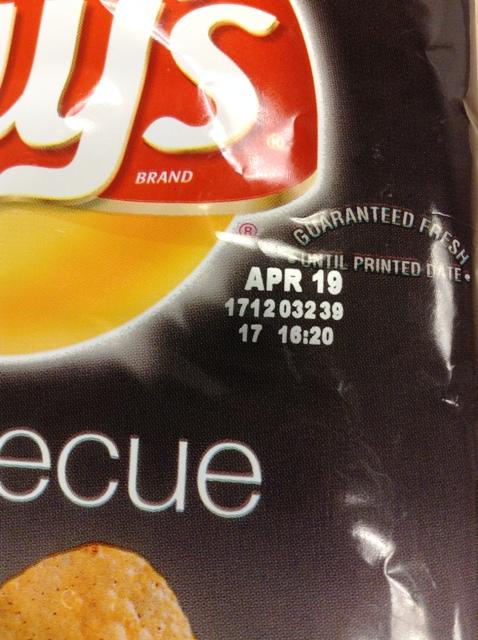Expiration Dates: Expired, Spoiled or Perfectly Ripe
Expiration dates aren’t always what they seem.
Many studies have shown that Americans waste over 25% of food every year; that’s over 1,000 pounds and 1 million dollars’ worth of food. These drastic numbers may not only be caused Americans being wasteful but simply misled. Expiration dates have been classified as one of the top three reasons people in America throw away food. Throughout the years, multiple studies have been conducted to prove that just because something is marked as expired, doesn’t mean it’s completely inedible. Studies have shown that many foods can be eaten past their given expiration dates if they are prepared and stored properly. The problem is that not enough people know this, and those who do know, don’t know enough about it. The lack of knowing when something should be tossed or kept is wasting millions of dollars every year. Lambert High School, it’s time to know if expiration dates are expired, spoiled, or perfectly ripe.
What are expiration dates?
Expiration dates are usually shown in the form of month/day/year or day/month/year. Expiration dates are meant to tell people when a food is no longer edible. While yes, it is true that consumers should check expiration dates before buying or eating foods, they often have nothing to do with food safety. Expiration dates are issued by the United States Department of Agriculture (USDA), to tell consumers when the product they are eating is no longer of its best quality. Expiration dates can be used to ensure quality and freshness. Consuming a food after the expiration date printed on the packaging can be risky depending on the type of food, how long it has been after the printed date, and where and how the food was stored.
Different types of Expiration Dates:
Sell by dates- Sell by dates are usually found on perishable items such as milk, meat, poultry and seafood. This kind of date is used for stores to know how long they can display a product. If a purchased and the sell by date is expired, then the consumer should take caution. Making sure all meats and poultry are cooked and stored properly along with proper storage of eggs and milk should help guarantee longer freshness.
Best by dates- Best by dates include “best if used by”, “best before”, and “use by” dates. These dates help insure freshness but it does not mean a product cannot still be consumed if this date has expired. Dates like these are usually found on “shelf-stable” products such as mayonnaise, peanut butter and mustard. If stored in a cool dry location many of these products can be consumed after this date.
Expires on- These kinds of expiration dates are fairly self-explanatory. The product will expire on this date. Consuming or using a product after this date is not recommended. These dates can be found on various items from toothpaste and lotions to baby foods and candy.
Packing codes- Packing codes are used my manufactures and usually appear as a series of numbers and letters. They can include the date that the product was manufactured and/or packaged. Knowing when something was packaged could provide insight to whether or not a product should be consumed or used.
Where do you find expiration dates?
Most expiration dates can be found on the tops of boxes and cans or on the bottom of the original packaging. When buying foods and other health products- like soap, toothpaste and lotions- check for an expiration date and only buy the product if you plan on using it before that date. If a date is faded or unreadable, look for a product where the date is clear or trust your best judgement when using and preparing the product.
What do I do if I purchase expired food?
On the off chance that a consumer purchases a product that has already expired, the consumer should first try to return the item. Most stores will exchange the expired item for another one but, in the event that the store won’t, try contacting the company from which the product came from. If all attempts to return or exchange the product fail, then the best thing to do is either throw the product away or try consuming or using it with caution. Make sure to always check for expiration dates before purchasing items and if an item is expired tell someone in customer service or a manager.
Can you trust them all?
Sadly, consumers can’t rely solely on expiration dates. To truly be a healthy and smart shopper, buyers should always check foods for freshness, mold, and anything else that looks like it could potentially be harmful. Eating or using expired foods can be dangerous. Making sure that all of your food is cleaned and safely cooked to the right temperature along with being stored properly is very important.
Expiration dates aren’t always a suggestion. They’re put there for a reason so they should definitely be taken into account. If a consumer chooses to ignore the expiration dates, then that’s completely up to them but they should take into consideration the risks they put themselves and those around them in. Using smart judgment when buying, preparing, eating, cooking and using any products is vitally important to the health of consumers everywhere. As a consumer you shouldn’t have to worry about if what you’re buying is expired or safe to eat but you do. Something as simple as checking a date on a label could save you time and money. So you decide, expiration dates: expired, spoiled, or perfectly ripe?
Your donation will help support The Lambert Post, Lambert High Schools student-run newspaper! Your contribution will allow us to purchase equipment and cover website hosting costs.








